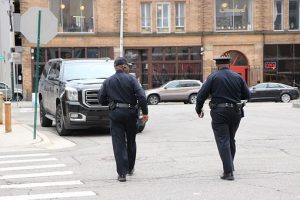On April 14, 2020, New Jersey Governor Murphy signed a food waste recycling bill (A2371) aimed at requiring large producers of food waste in New Jersey to recycle their unused food. This mandate is schedule to go into effect on approximately October 14, 2021.
approximately October 14, 2021.
The law applies to “large food waste generators” which are defined as “any commercial food wholesaler, distributor, industrial food processor, supermarket, resort, conference center, banquet hall, restaurant, educational or religious institution, military installation, prison, hospital, medical facility, or casino that produces at least 52 tons per year of food waste.” Any large food waste generator that is located within 25 miles of a food recycling facility will be required to separate out food waste from other solid waste and send the food waste to the food recycling facility. Alternatively, these generators can compost their food waste (or other authorized anaerobic or aerobic digestion) on-site, or use other recycling alternatives.
The New Jersey Department of Environmental Protection (known as the “DEP”) lists food waste recycling facilities to include Trenton Renewable Power, LLC (Trenton, NJ), and Waste Management Core (Elizabeth, NJ). Therefore, a significant amount of generators in New Jersey will likely be considered to be within the 25 miles. Those outside the 25 miles range or with waste which is not accepted by the food recycling facility within their range may dispose of the waste as they normally would with other solid waste.
 limited liability company (“LLC”). Since limited liability companies offer both the shield from personal liability of a corporation and the single taxation structure of a partnership, these are often the preferred structure for small businesses.
limited liability company (“LLC”). Since limited liability companies offer both the shield from personal liability of a corporation and the single taxation structure of a partnership, these are often the preferred structure for small businesses. New Jersey Lawyers Blog
New Jersey Lawyers Blog


 Jersey civil service law enforcement officer.
Jersey civil service law enforcement officer. protections are extremely valuable.
protections are extremely valuable. Appellate Division of the New Jersey Superior Court recently examined some of these ramifications in its opinion in the case of
Appellate Division of the New Jersey Superior Court recently examined some of these ramifications in its opinion in the case of  the case of
the case of  to use
to use  Jersey
Jersey  approximately October 14, 2021.
approximately October 14, 2021. differences.
differences. has a viable claim for promissory estoppel and may recover “reliance damages” from the prospective employer based on what she would have made had she not quit in reliance on the promise and stayed at her prior job. Promissory estoppel is a legal doctrine which provides that a party should be responsible for the consequences when a promisee relied on its promise and suffers damages when the promisor fails to perform.
has a viable claim for promissory estoppel and may recover “reliance damages” from the prospective employer based on what she would have made had she not quit in reliance on the promise and stayed at her prior job. Promissory estoppel is a legal doctrine which provides that a party should be responsible for the consequences when a promisee relied on its promise and suffers damages when the promisor fails to perform.